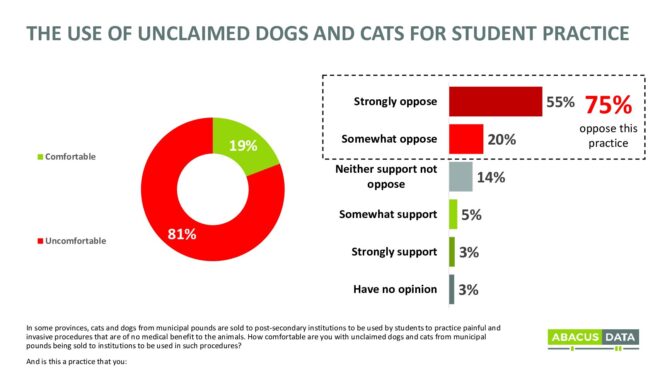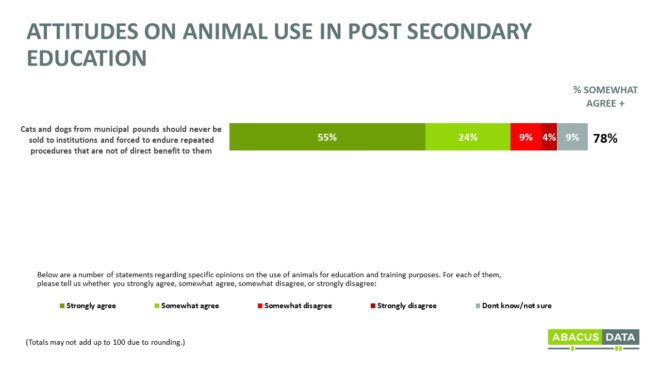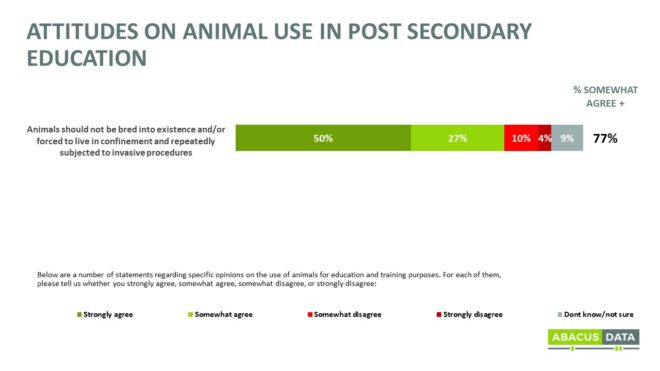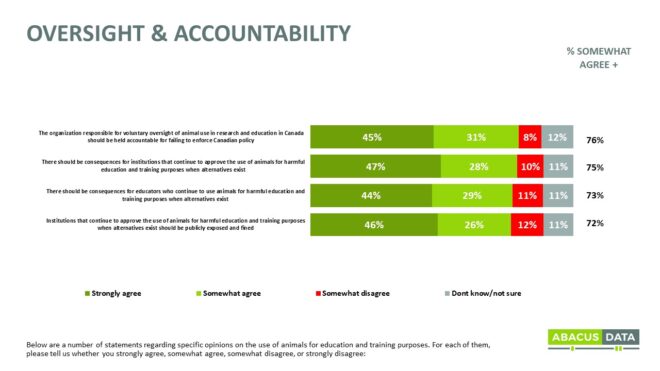
New research, commissioned by the Animal Alliance of Canada Fund (AAC Fund) into public attitudes on the use of live animals in post-secondary education and training programs, reveals strong opposition to the standard practices of most Canadian programs and want to stop the use of animals in postsecondary institutions.
For example, to train veterinary students how to perform invasive clinical procedures such as venipuncture and nasogastric tubing, animals such as dogs, cats, horses and cows are bred and warehoused in colonies on institutional grounds. Additional dogs and cats are sourced through municipal pounds in a practice called ‘pound seizure’. These animals are used repeatedly for procedures that are of no medical benefit to them and suffer the consequences in the form of chronic stress, learned helplessness and sometimes, debilitating injuries. Over 150,000 animals are used in post-secondary education and training every year in Canada with approximately one third subjected to extremely painful procedures.
The Canadian Council on Animal Care (CCAC) is tasked with oversight of these animals. While the Council’s own policy dictates that animals may only be used if alternatives are not available, the number of animals used annually in education and training has tripled since the 1990s, topping out at over 400,000 in 2016 and 2018 – all while thousands of effective humane tools and methods exist. With these ethical methods and tools available to replace animal subjects, it is more important than ever to stop the use of animals in postsecondary institutions
The key findings from the research* reveal that:
- 82% of Canadians believe more should be done to reduce the use of animals in education and training

- 81% of Canadians are uncomfortable with pound seizure and 75% oppose the practice

- 78% of Canadians want the practice of pound seizure stopped

- 77% of Canadians want post-secondary education institutions to stop breeding and keeping colony animals

- 76% of Canadians want the CCAC held accountable for not enforcing its own policy on the use of alternatives
- 75% of Canadians feel there should be consequences for institutions that continue to approve the use of animals when alternatives exist.

In addition, 62% of Canadians would support the government directing more funding towards education institutions that do not rely on the harmful use of animals and 66% would be more supportive of a government that values animal welfare.

As these survey findings make clear, Canadians overwhelmingly want post-secondary education institutions to stop the use of animals to teach students. It would be in the best interests of universities and colleges across Canada to heed these findings and move towards fully humane curricula as Canadian policy mandates, and for Canadian politicians to champion this change.
*Research conducted by Abacus Data from January 10-23, 2023, who surveyed 1,500 Canadian residents aged 18 and over, representative of the adult population by age, gender and region. The findings of this survey in its entirety can be found here. [Contrary to a widely held view, the research found no statistical difference between the general public and those in STEM (science, technology, engineering and mathematics) careers.]